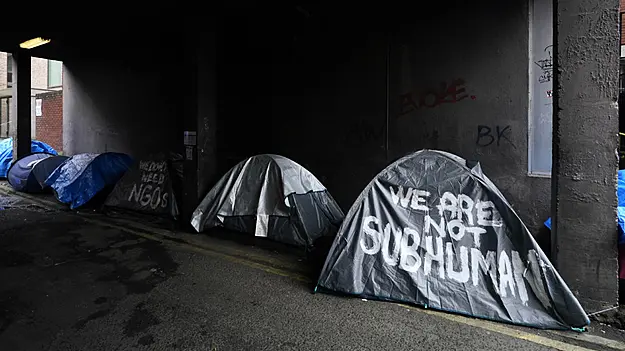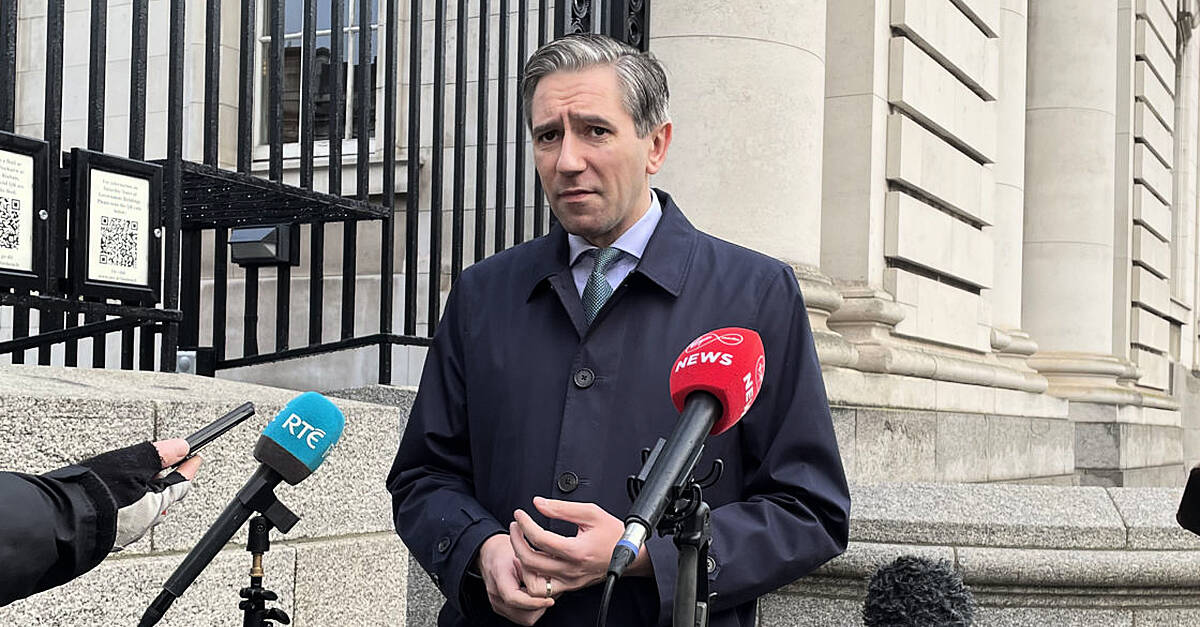The Government “has absolutely no intention of becoming a landlord” the Tánaiste said, ahead of a Cabinet meeting where ministers were due to discuss new plans to charge some international protection applicants for accommodation.
Speaking to reporters outside Government Buildings on Wednesday, Simon Harris said: “I reckon, the overwhelming majority of people in this country believe that if you’re earning money, you should be asked to pay towards your keep.”
However, there has been criticism of the quality of migration accommodation, with the chief executive of the Immigrant Council of Ireland, Teresa Buczkowska, telling RTÉ’S Drivetime on Tuesday people are living in “overcrowded situations” with children “who are unable to learn how to walk because there is not enough space for them”.
She asked that if the Government is going to charge money for accommodation, would they comply with the obligations required of landlords to provide appropriate accommodation?
Mr Harris said the Government would be asking people with an income “to pay a small contribution, about €15 a week for someone on about €150”.
He said: “It’s not going to change that relationship in terms of becoming a landlord.”
The Tánaiste claimed the policy of allowing working international protection applicants to receive free accommodation “simply defies common sense, it defies social cohesion, it defies fairness”.
He said if it “doesn’t end” it allows a “vacuum to develop” which could be filled with far-right “populists”.

Ireland
Irish Centre for Human Rights warns against ‘endless tinkering’ with asylum system
The policy is one of a number of migration and asylum issues due to be discussed at cabinet which the Taoiseach described as a “modest tightening-up” of Ireland’s policies.
Asked if the measures were a reaction to major plans announced last week by the British Home Secretary Shabana Mahmood to change UK border security, Mr Martin said many of his Government’s new policies were “conceived in advance of that.”
He described the “broader issue of migration” as being “positive in terms of our economy and our society”, adding: “We only have to look at our health services, or indeed the technology sector, to see that.”

